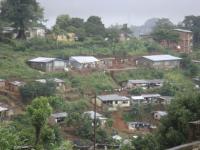David Adjaye
Articles tagged with David Adjaye
Tag Archive
- Activistas
- Africa.Cont
- african citys
- African Lisbon tour
- afro-brazilian
- agricultores
- Alqueva
- Angolan
- angolan fashion
- Angolan Journalist
- anti-racism
- antiracism
- arte contemporânea
- Artemisa Ferreira
- artists
- artworks
- Bab Septa
- Biennial – S. Tomé
- black feminism
- black heroes
- black people
- branco
- British cinema
- cannibal museology
- Carlos Nô
- chinese
- ciberespaço
- civil war
- Conceição Evaristo
- culture programme
- curatorship
- dailylife
- Dakar
- développement
- Diário de um etnólogo guineense na Europa
- dj lucky
- Dominique Zinkpé
- ethnicity
- european
- Felix Shumba
- Felwine Sarr
- fotography
- geração 80
- havana
- Hélio Oiticica
- imagination
- instalation
- insularity
- insurreições
- intersectionality
- Jihan el Tahri
- Johanesburg
- journey
- JSF #2
- kilimanjaro
- Looking After Freedom?
- Lost lover
- lucio lara
- mapa
- Marcelino da Mata
- Maré
- Maria Vlachou
- Mayra Andrade
- Michel Figueiredo
- mpla
- multiculturalism
- Munique
- nairobi
- new negro
- O Riso e a Faca
- One World in Relation
- ortigrafia
- Osvalde Lewat
- painting
- paisagem
- Pedro Coquenão
- Peter Weiss
- Portuguese Colonialism
- protests
- race
- representação
- revista
- Rio de Janeiro
- riots
- Sana na N’Hada
- Sao Tomé et Príncipe
- settlers
- short filme
- society
- south
- south african
- stage
- Steve McQueen
- Stuart Hall
- Sueli Duarte
- Tarnac
- terrorisme
- URSS
- Vazante
- voting
 These new views of urbanity in Africa force us to re-equate new paradigms, new urbanism models, as Adjaye proposes, and new forms of intervention in urban areas that take into account the multiplicity and complexity of what occurs in each city and that can only be found and managed locally. This applies both to what occurs in the old city centers – some of their “hearts” still beat – as to their replicas that were born afterwards.
These new views of urbanity in Africa force us to re-equate new paradigms, new urbanism models, as Adjaye proposes, and new forms of intervention in urban areas that take into account the multiplicity and complexity of what occurs in each city and that can only be found and managed locally. This applies both to what occurs in the old city centers – some of their “hearts” still beat – as to their replicas that were born afterwards.  David Adjaye, one of the leading architects from his generation, living between London and New York, returned to Lisbon. 'Urban Africa - A Photographic Journey' was the reason why. This exhibition, recently launched at the Black Pavilion of Lisbon City Hall Museum, is a photographic tour but also a retrospective of memories from an architect who never left Africa.
Born in 1966, in Tanzania, from a family of diplomats, he was soon forced to understand the inevitability of travelling, the need to readapt and redefine oneself. Nevertheless, the nomad lifestyle didn’t break his strong relation with the African continent. His work confirms his deep relationship with its landscapes and its places. In Urban Africa (and also in this conversation) David shares his panoramic view of this vast territory and his – spoken – will to live there again.
David Adjaye, one of the leading architects from his generation, living between London and New York, returned to Lisbon. 'Urban Africa - A Photographic Journey' was the reason why. This exhibition, recently launched at the Black Pavilion of Lisbon City Hall Museum, is a photographic tour but also a retrospective of memories from an architect who never left Africa.
Born in 1966, in Tanzania, from a family of diplomats, he was soon forced to understand the inevitability of travelling, the need to readapt and redefine oneself. Nevertheless, the nomad lifestyle didn’t break his strong relation with the African continent. His work confirms his deep relationship with its landscapes and its places. In Urban Africa (and also in this conversation) David shares his panoramic view of this vast territory and his – spoken – will to live there again. 